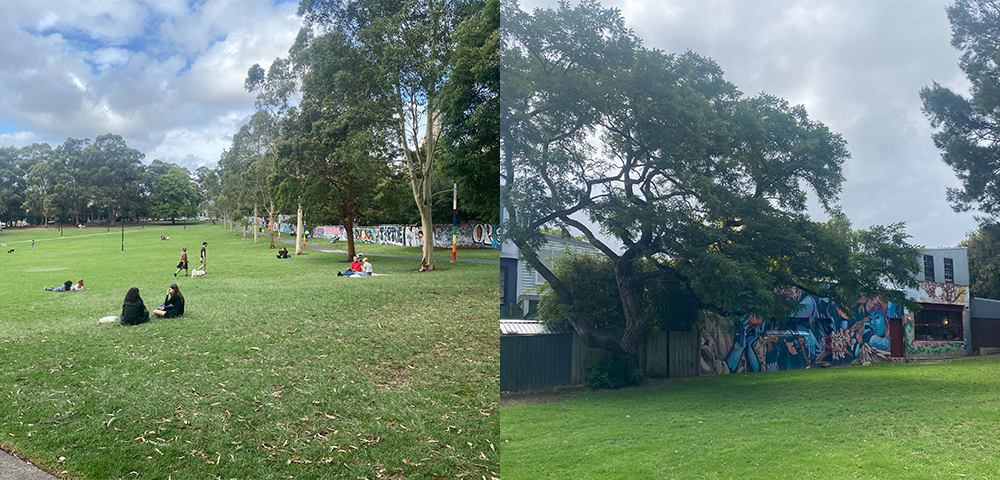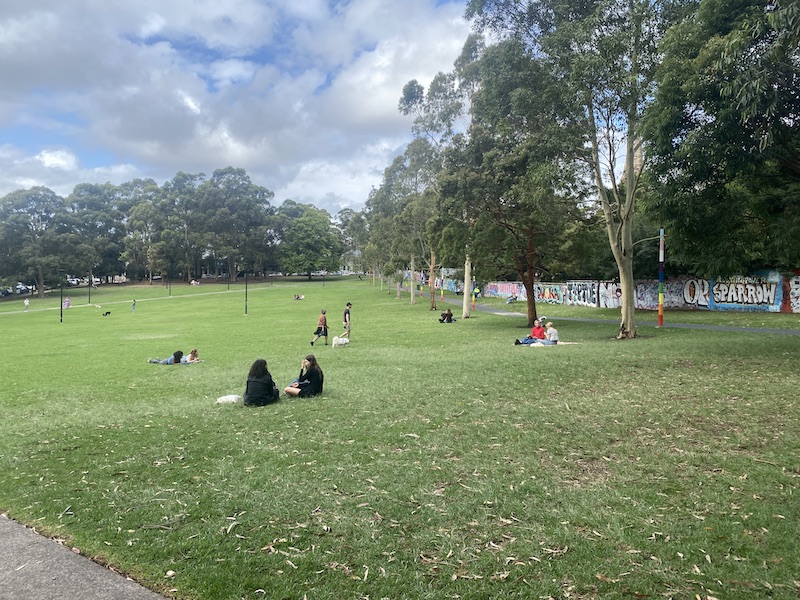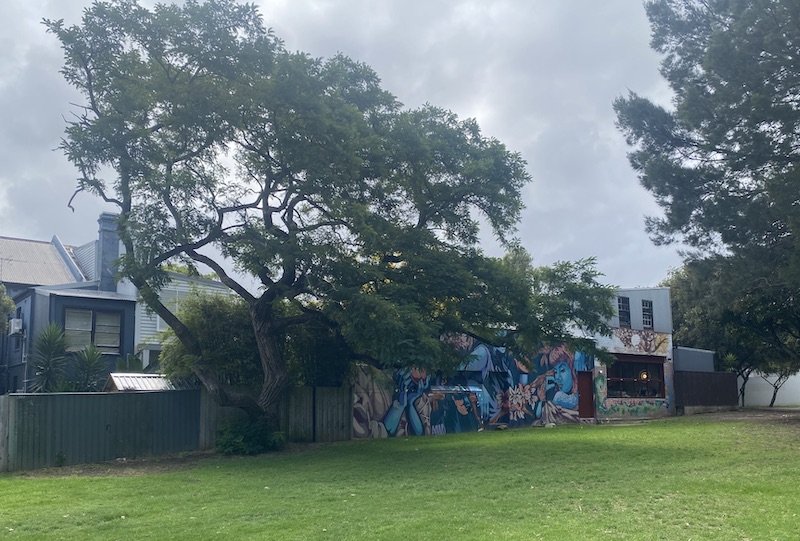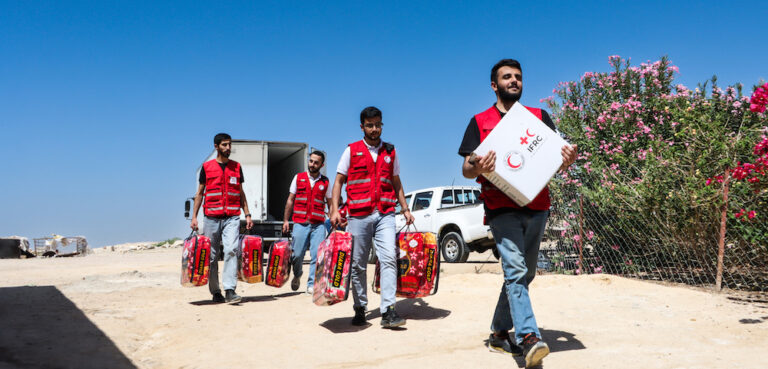
Inner West Residents Speak Up To Oppose New Cafe In Camperdown Park

Inner West Council has granted approval for a private restaurant to operate a cafe in Camperdown Park despite strong community opposition.
Labor Councillors voted to lease a platform that will be built inside Camperdown Memorial Rest Park, from which the newly opened Comedor Restaurant will sell drinks and food for up to 13 hours a day through its back window.
One might ask: why is a decision about another place to buy coffee in Newtown even a story? The answer is that the decision sets a new standard for the Inner West Council to approve a commercial operation in its public spaces. There has been no tender process, the restaurant is in a residential area and more than two-thirds of community members who provided feedback on the proposal were opposed to it.
At heart, the issue is about how decisions relating to handing over public space to commercial ventures will be made and the role and quality of community consultation.
Camperdown Park – or Campo as it’s known – is the only major park in the centre of Newtown and is close to several cafes. On any sunny afternoon, clumps of young people are spread across its open space having picnics or just catching up.

Council is currently developing a new Plan of Management (POM) for the park. The previous POM which was developed by Marrickville Council before the Inner West Council were amalgamated was based on non-commercial development. Many community members have come up with suggestions for the new POM including for tables ( there are currently none), a community-run non-profit cafe and more lighting, street art and gardens – the only proposal that attracted significant opposition was the Comedor cafe.
The cafe should have been up and running by now without community consultation. In August this year, Council was in the process of finalising a “hirers’ agreement” with chairs and tables for food and drinks as well as a take-away business. The agreement had flowed from an out-of-court settlement in legal proceedings that resulted from Council’s initial refusal of a restaurant proposal in a residential area.

The management of the up-market Comedor restaurant promoted the cafe as an important feature of its business to a SMH Good Food Guide reporter who reported that “when daylight savings comes around, I’ll be heading straight to Camperdown Memorial Rest Park and one of the eight outdoor deck chairs at the east-side Comedor. You’ll be able to eat snacky, corn-based Mexican things, sink cold brew coffee, and – if the licensing gods are kind and giving – you may also bring your own bottle of wine.” This was before most residents and park users even knew of the proposal.
When news of the cafe spread, park-users were annoyed that there had been no consultation. Council acknowledged that this step had been forgotten. With local government elections pending, it resolved to halt construction while the community was consulted.
Flawed consultation process on Camperdown Park changes
The community engagement consisted of surveys and meetings. Advertising company Adpost was hired to deliver 2500 letters to homes in the surrounding streets, informing them that they could attend a meeting. Only six people attended that meeting, five of whom attended as a result of being told by the other resident, not because they received a letter.
A number of residents complained to Council that they did not receive a letter. City Hub also spoke to a number of residents who were sure that they did not receive the letter. We spoke to one resident who did.
Last week, City Hub asked the Inner West Council whether the general manager is “confident that a genuine process of community engagement has taken place for this proposal” and whether any investigations had been carried out into the complaints. We received no answers to those questions.
City Hub approached Adpost which is contracted to deliver letters for Inner West Council. Staff member Jode Ince told us that the company had received a query from the Inner West Council due to complaints from residents that they did not receive letters. She said she was able to supply a GPS tracking report that shows the letters were delivered. She said that complaints are usually raised when a proposal is controversial. Asked whether the company ever receives reports that leaflets had been removed from letter boxes, she said that such complaints are occasionally received but not in relation to Inner West Council.
The six residents who attend the meeting opposed the proposal. So did more than two thirds of those who responded to a survey. Others wrote letters and recorded their opposition on an interactive map being used for the Plan of Management process.
With the community engagement dispensed with, Council prepared a report under Council’s strategic objective of “progressive, responsive and effective civic leadership”. They adjusted the proposal, supposedly in response to feedback. The chairs and tables are gone for now – to be reconsidered later – the hours are slightly longer than originally intended and the deck is a bit smaller.
The main argument in favour of the proposal is these sort of cafes are standard practice in the Inner West. Long-term resident and community activist Pip Hinman described it as comparing “apples with oranges”.
Eight similar operations were nominated by staff including three attached to Council-owned aquatic centres, Deadly Connections in Enmore Park which is a community project for First Nations youth, another is in a disused Council owned building. None are near a busy cafe strip or in a street of houses.
Labor Councillor for Stanmore-Damun Ward Chloe Smith moved that Council approve the staff report. Smith, who works as a senior community engagement advisor in the NSW Premier Chris Minns’ department, is a professional community engagement expert. She described the community engagement process as “extensive and considered” and the proposal to be part of “a very clearly established practice for similar agreements at parks throughout the inner west”. Aware that not everyone would be satisfied, she declared that she was confident that “ the amended proposal has great scope to enhance and diversify a small and under utilized section of the park” that will “bring additional vibrancy and offerings to our community.”
Greens Councillor for Stanmore-Damun ward Liz Atkins opposed the motion, arguing that the cafe should be considered as part of the “strategic holistic” development of the POM which is underway. They said that members of the community, including some who supported the proposal, were questioning why there was such a hurry to approve it. This “reflects the feeling that this has been badly managed, both because they feel they found out by accident and because once it was decided that a process of community engagement should occur, that process has not gone smoothly, with people reporting they did not receive the letter that was distributed advising how to have their say and about the public meeting.”
Several residents spoke at the Council meeting against the proposal and none supported it. The owner Walter Shellshear was represented by his planner Philip Bull, who declared that “civilised parks” have cafes and that his client had fulfilled all development application requirements, and by his real estate agent Charlie Bailey.
Bailey’s involvement with the Australia Street property goes back to at least 2017. At this time, Shellshear and his partner Bianca Perera were trying to sell the property which they had bought for $960,000 in 2007. They wanted to move East to be closer to their sons’ school. Bailey told SMH Domain that the property was withdrawn from auction after it failed to meet the reserve price of $2.8 million. Ms Perera told Domain that “the pair said they will miss their lovingly transformed home, and having a park at their back door. It was like having an extension of your back garden, you open the back door and the kids can go out on the playground and kick the ball around,” Ms Perera said.
In fact when City Hub visited the area there were two young children kicking a football while younger siblings played in the nearby playground. Amy Gray, a resident who opposed the proposal, told Council that her children still play there now.
This all goes to show that what is productive and non-productive in a park is very much a matter of perception. Now that the cafe has been approved for an initial 12 month period, football games will have to move well away. The coffee machine is ready to swing into action and there is no reason to think that the cafe will not attract customers.
News corporation describes those who opposed the cafe as NIMBY. It’s a word that has become a convenient way to slap down opposition. But in fact, the conflict over the park can not be reduced to property owning neighbours versus those seeking more fun and entertainment. In fact, many of those who oppose the cafe include renters and campaigners for more public housing in the Inner West.
‘Newtown doesn’t need to be any more vibrant’
‘Vibrancy’ is another word that is used by those who support business proposals such as this one.
Tom Patterson, an environmental engineer and resident told the SMH, “There’s this really big push to get Sydney more vibrant, and I’m absolutely for that. But Newtown doesn’t need to be more vibrant. It must be one of the most vibrant neighbourhoods in the world,” Patterson said. “What makes a great community is the contrast. You can have amazing nightlife, and you can have a wonderful park.”
Although Council did not answer City Hub’s questions, staff did post a media release after the approval that highlighted “extensive and thorough community engagement process”. The amended proposal is described as addressing “community concerns as best it can: while allowing us to proceed with a proposal that will significantly enhance one of our well-loved local parks and give user direct access to one of Sydney’s best restaurants.”
Many of the young people who regularly occupy Campo are understandably more worried about paying the rent than campaigning on local issues. They can barely afford a cup or coffee, let alone visit Sydney’s best restaurants.
But now that that the Labor controlled Council has voted that cafes such as Comedor’s outlet are standard practice for Inner West parks, the community can expect more such proposals in the future. The approval was always going to be forthcoming – the failure to ‘consult’ was just a misstep along the way.
Will the community be able to regain some meaningful rights to consultation or will community engagement become nothing more than a management check box exercise for private interests? If the answer is to be the former, the Inner West has a battle on our hands.
Wendy Bacon is a long term Newtown resident and was previously the Professor of Journalism at UTS.










Leave a Reply